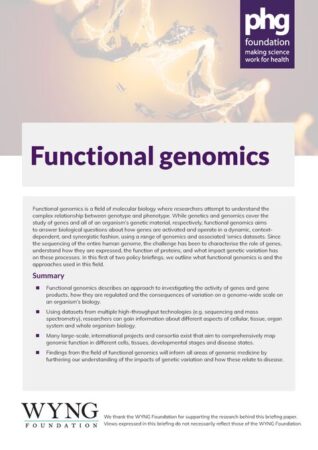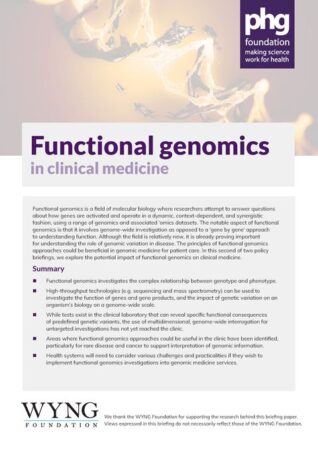Home Publications Policy briefings Functional genomics
Functional genomics
Functional genomics is a field of molecular biology where researchers attempt to understand the complex relationship between genotype and phenotype. While genetics and genomics cover the study of genes and all of an organism’s genetic material, respectively, functional genomics aims to answer biological questions about how genes are activated and operate in a dynamic, context dependent, and synergistic fashion, using a range of genomics and associated ‘omics datasets.
Since the sequencing of the entire human genome, the challenge has been to characterise the role of genes, understand how they are expressed, the function of proteins, and what impact genetic variation has on these processes.
In the first policy briefing, we outline what functional genomics is and the approaches used in this field. In second policy briefing, we explore the potential impact of functional genomics on clinical medicine.
Summary
- Functional genomics describes an approach to investigating the activity of genes and gene products, how they are regulated and the consequences of variation on a genome-wide scale on an organism’s biology
- Using datasets from multiple high-throughput technologies (e.g. sequencing and mass spectrometry), researchers can gain information about different aspects of cellular, tissue, organ system and whole organism biology
- Areas where functional genomics approaches could be useful in the clinic have been identified, particularly for rare disease and cancer to support interpretation of genomic information



